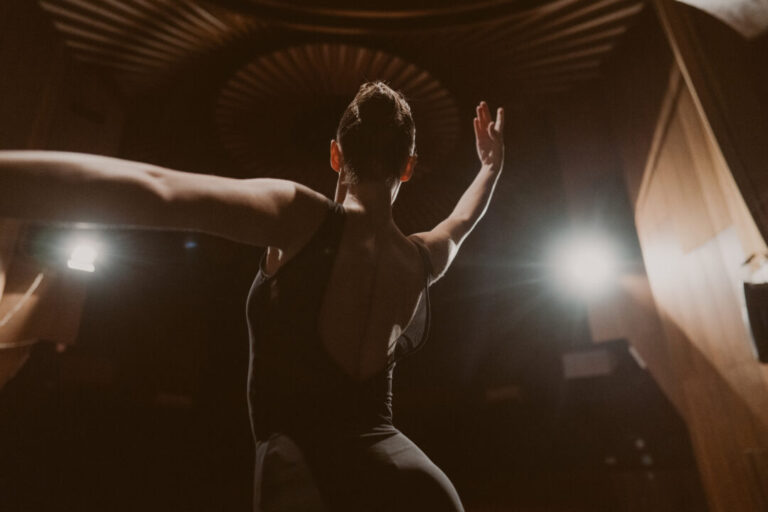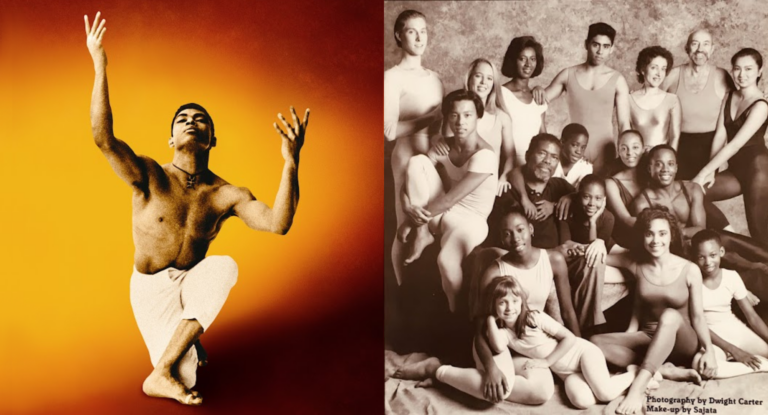
At a time when Stacey Tookey’s dancing should have been taking off, she suffered two serious health setbacks that almost cost her her career.
First, at 17, she learned she had stress fractures in her shins that were so bad she could have snapped her tibias. She had to recover in a wheelchair and took a year off from dancing. “I had never rested a day in my life and worked through any pain I’d ever had,” she says. “It was the first message to myself that I’m not invincible.”
Then, at age 21 while living and working in New York City, an eating disorder she had been struggling with combined with another health problem. She was diagnosed with inflammatory bowel disease when she was 16, and medications failed to ease her nausea, bloating and abdominal pain, so she couldn’t gain enough nutrients from food passing through her. “I basically collapsed one night,” she says. She was hospitalized for malnourishment and spent months at home in Edmonton, Canada, her career on hold again.
Today, Tookey says, caring for herself is a top priority. “I made a complete flip on my health and self-awareness,” she says. She follows a strict nutritional regimen based on what her digestive system can handle, while still powering her body for teaching on the rigorous convention circuit. She found what works for her through a combination of Chinese traditional medicine, food-allergy testing and an elimination diet recommended by an herbalist. She also gets regular acupuncture. “It just helps,” she says. The disease has been in remission for more than 20 years.
While Tookey’s circumstances may be extreme, she says learning to prioritize your own health is a lesson every dancer needs to learn sooner rather than later. “You can expect great things from your body if you take care of it,” she says.
Q: What do you eat?
A: If I get one good meal, it’s my breakfast. I’ll have eggs with spinach and sweet potatoes. I’m a huge advocate of a green smoothie in the morning. You can just throw in some spinach and kale, pineapple, mango. Sometimes I add collagen. You can add whatever you want—matcha, protein powder, flaxseed oil—then mix it up and go out the door. The more veggies I eat, the more satisfied I feel during the day. I eat a lot of salads: fresh food with lean protein. I try to limit myself on sugar.
Q: How do you maintain your dietary habits when you’re traveling?
It’s funny to see me in the airport, because I basically travel with a cooler of food. I’ll cut up vegetables and hummus and pack spinach and a little Magic Bullet blender, and I’ll do little bags of nuts to go. It’s rare you find a good place to eat in the airport. When I’m there, I know I have my blender and spinach. You can always get a banana from the gift store, or I’ll order room service and just ask for a plate of berries. I travel with my protein powder and make my green smoothies.

Photo by Joe Toreno
Q: What about those weeks when the system falls apart?
There’s definitely going to be a time when it’s not going to go your way, and no matter how well you treat your body, there will be a time when your immune system is going to crash, and you’re going to find yourself on the couch and eating mac and cheese or whatever makes you comfortable. For me, this is not about being perfect. When I have those moments, I know the next day is a new day, and I just do my best the next day. It’s all you can do. I know, for me, when I’m rundown and I just want to eat this or drink that, I notice I don’t feel good afterward, so that’s a trigger for me to get back on track. You have to give yourself those moments, though. I don’t believe in being perfect.
Q: Do you work out?
Yoga, Pilates, Gyrotonic. I’m into qigong right now. I feel like if I can sneak in one of those things a day, I’m good. I also try to rotate one self-healing “Let’s check in with Stacey, see how we’re doing” thing each day. I wish I had more time to meditate and journal. The older I get, the more I realize I need time to quiet my mind. It’s difficult for me to sit with my breath and a quiet mantra. I try to take 30 minutes, but sometimes it’s just 10 minutes to connect to my breath and body. It’s new for me, but I notice a huge difference in the way I’m able to parent, teach and connect with students.
Q: Anything else you’ve discovered?
I’ve learned the value of a good night’s sleep, of training super-hard but having time off to process and heal. Injuries and health are related to rest. We have a culture of “We only need four hours of sleep,” and “I’m so exhausted but I did this, this and this.” Now that dancers are excelling at an early age and there’s so much expected of them, I’m seeing more injuries. You need good-quality and enough sleep.
Q: What’s your formula for a good night’s sleep?
I do my best to turn off my phone at 6. When I’m getting dinner and getting my daughter to bed, that time I am unplugged. There’s always another e-mail to answer, there’s always another text to respond to or phone call to make. And I find that if my mind starts racing late at night, it doesn’t stop and I can’t sleep well. It’s a work in progress. I say all this stuff like I do this perfectly, but just the other night I was waiting for something coming in from my agency, and my husband was out, and I just went to lean over to see if he had texted, and what did I do? I ended up on my e-mail, and then it was “game over.”
Q: What’s the most important takeaway from your experience that you convey to young dancers?
Treat your body as a whole and know that it is so powerful and resilient if you take care of it. That means listening to your doctors, teachers and yourself. No one knows your body as well as you do.




